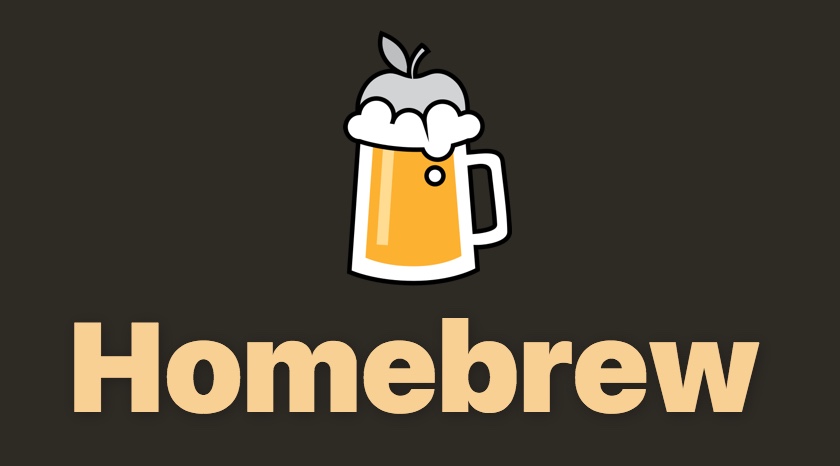
- #Homebrew for mac 10.13 how to
- #Homebrew for mac 10.13 mac os x
- #Homebrew for mac 10.13 mac osx
- #Homebrew for mac 10.13 update
- #Homebrew for mac 10.13 upgrade
HOMEBREW_SDKROOT: /Applications/Xcode.app/Contents/Developer/Platforms/atform/Developer/SDKs/MacOSX10.13. PKG_CONFIG_LIBDIR: /usr/lib/pkgconfig:/usr/local/Homebrew/Library/Homebrew/os/mac/pkgconfig/10.13 SDKROOT: /Applications/Xcode.app/Contents/Developer/Platforms/atform/Developer/SDKs/MacOSX10.13.sdkĬMAKE_INCLUDE_PATH: /Applications/Xcode.app/Contents/Developer/Platforms/atform/Developer/SDKs/MacOSX10.13.sdk/usr/include/libxml2:/Applications/Xcode.app/Contents/Developer/Platforms/atform/Developer/SDKs/MacOSX10.13.sdk/usr/include/apache2:/Applications/Xcode.app/Contents/Developer/Platforms/atform/Developer/SDKs/MacOSX10.13.sdk/System/Library/Frameworks/amework/Versions/Current/HeadersĬMAKE_LIBRARY_PATH: /Applications/Xcode.app/Contents/Developer/Platforms/atform/Developer/SDKs/MacOSX10.13.sdk/System/Library/Frameworks/amework/Versions/Current/LibrariesĬMAKE_FRAMEWORK_PATH: /Applications/Xcode.app/Contents/Developer/Platforms/atform/Developer/SDKs/MacOSX10.13.sdk/System/Library/Frameworks
#Homebrew for mac 10.13 update
Homebrew Ruby: 2.3.3 => /usr/local/Homebrew/Library/Homebrew/vendor/portable-ruby/2.3.3_2/bin/ruby Homebrew / brew Public Notifications Fork 7.9k Star 32.9k Code Issues 23 Pull requests 21 Actions Security Insights New issue brew update errors on MacOS 10. HOMEBREW_CACHE: /Users/alexandrebiguet/Library/Caches/Homebrew Make: *** No rule to make target `Makefile.'. I believe by default it uses all available cores. would just use 1 core (good for mining in the background). t is the number of CPU cores (threads) to use when mining. To adjust your mining power, use the -t flag. So I uninstalled the homebrew by executing the below command ruby -e '(curl -fsSL http.
#Homebrew for mac 10.13 upgrade
After upgrade my homebrew seems to have stopped working. We selectively backport and adapt system libraries needed for building R packages. Recently I upgraded to MacOS High Sierra (10.13.4). Autobrew is a fork from upstream homebrew-core from the last day of MacOS 10.11 support. Makefile.system:1001: Makefile.: No such file or directory Start mining To stop mining just kill the process with ctrl+c, then start it up again when required. CRAN currently targets MacOS 10.11 (El-Capitain), however this version of MacOS is no longer supported by Apple, and the latest Homebrew no longer works there. Makefile.system:180: nf: No such file or directory If the screenshots below look slightly different than what you see on your screen, I’m using zsh + oh-my-zsh. NOTE: Apple replaced bash with zsh as the default Terminal shell in macOS Catalina.
#Homebrew for mac 10.13 how to
The system will not install a JRE that has an earlier version than the current :80:10: fatal error: stdio.h: No such file or directory Let’s look at how to install and use Homebrew on M1 and M2 Macs running macOS Monterey. When you install the JRE, you can install only one JRE on your system at a time. To install an earlier version of the JRE, you must first uninstall the current version. It can be as simple as installing the package, typing pure-ftpd & and that’s all. Beginners can install a Pure-FTPd server in 5 minutes. To determine the current JRE version installed on your system, see Determining the JRE Version Installed on macOS. As of writing, brew search ftp returns the following FTP servers: pure-ftpd vsftpd proftpd Based on their websites, pure-ftpd appears to be your best choice for easy installation.

Both are running High Sierra, which I suspect might be the problem due to Apple borking root permissions. I am trying to install new packages using Homebrew on my 2 Macbooks.
#Homebrew for mac 10.13 mac osx
However, the system will not replace the current JRE with a lower version. Fixing homebrew on Mac OSX 10.13.2 Ask Question 3 Just wondering if anyone can help fix homebrew for me. When you install the JDK, it also installs the JRE. Homebrew won’t install files outside its prefix and you can place a Homebrew for macOS installation wherever you like. You’ll still need Rosetta 2 to have some packages and formulae to work, but many are already native supported by the command line package manager.

Administrator privileges are required to install the JDK and JRE on macOS. Homebrew for Mac is a free and open source package management system for macOS.Homebrew installs the stuff you need that Apple Homebrew installs packages to their own directory and then symlinks their files into /usr/local. If you’re a Homebrew fan and an Apple Silicon Mac user, you’ll be happy to discover the latest versions of Homebrew (3.0.0 and beyond) now natively support Apple Silicon architecture. Installing the JDK and JRE on macOS is performed on a systemwide basis for all users.

You cannot install Java for a single user.
#Homebrew for mac 10.13 mac os x
The following are the system requirements for installing the JDK and the JRE on macOS: permissions - cant chown /usr/local for homebrew in Mac OS X 10.13 High Sierra - Stack Overflow cant chown /usr/local for homebrew in Mac OS X 10.


 0 kommentar(er)
0 kommentar(er)
